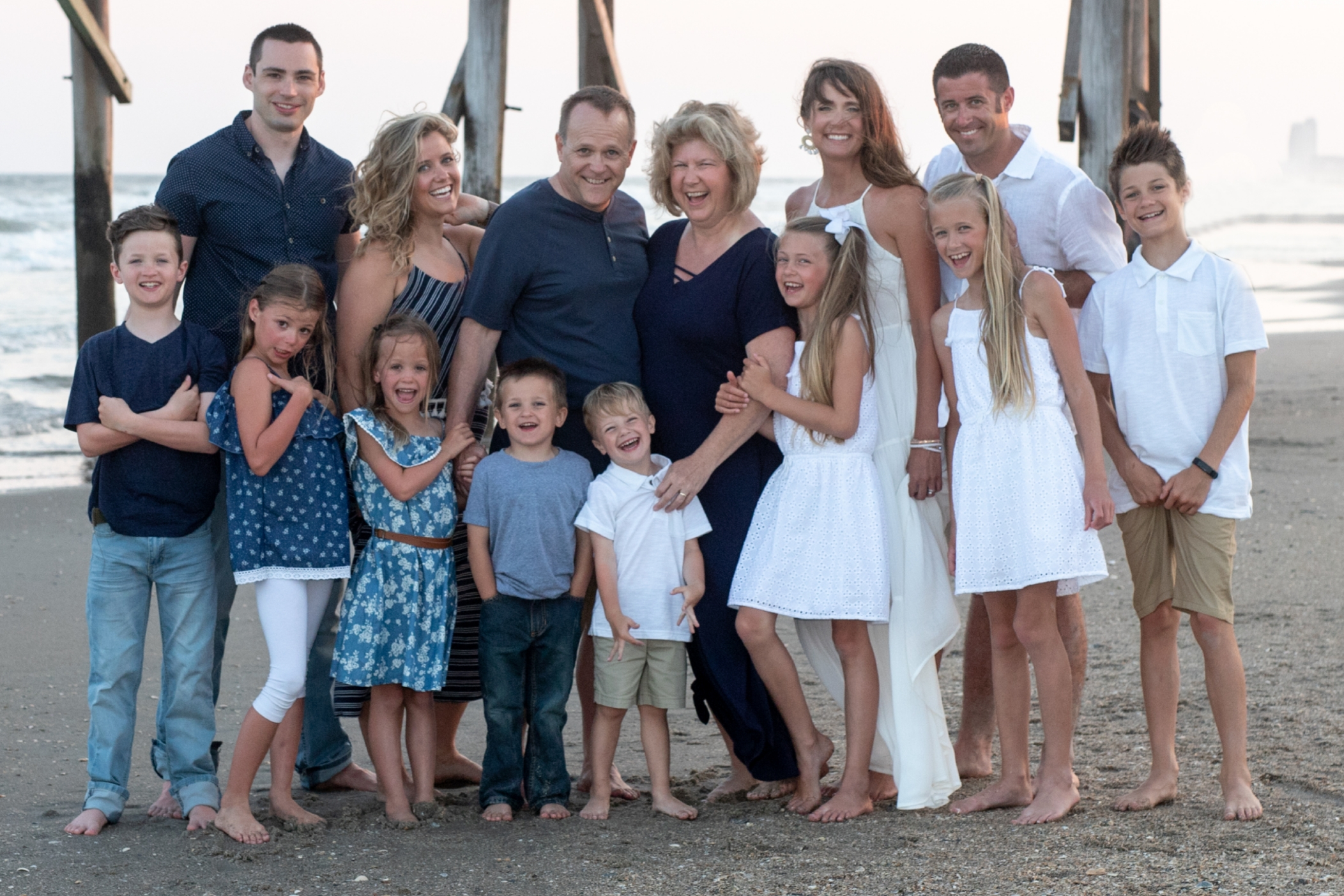Lori Ann and I joined the same writing group simultaneously. But it was a small online breakout session three years later that we connected. We quickly discovered that though the scripts of our stories varied, the theme of our messages was the same: God is with us through our suffering. Lori’s Divine Detour message is touching lives all over the US. Today, I am honored to have my friend share a piece of her heart with you.
Evelyn Sherwood
A doughnut shop thrives where my parents’ accounting office used to be. And part of me doesn’t like it one bit. I wish the 80s carpet and the worn oak desks were still there. I wish Dad’s printed-from-the-internet jokes were still taped to the front door. I wish Mom’s plants still overflowed from every ledge. But mostly, I wish Mom and Dad were still there, sending out invoices, filing taxes, and giving farming and estate advice to their neighbors.
After Dad died under hospice care, and then Mom passed suddenly four months later, my siblings and I reluctantly assumed the painful duty of liquidating their vehicles, home, a lifetime of possessions, and business.
Dad never wanted to retire or sell the business as a going concern. We urged him to, knowing the goodwill he and Mom had created would far exceed the worth of the physical building and contents. But Dad always said he couldn’t because it would feel like he was selling his friends. So he never retired. Even after passing away following a long battle with lung cancer, he still had work on his desk he was intending to finish.
When we cleaned out their office, it left a hole in the downtown block they had occupied for decades. After we prepared to put the building on the market, we turned the key in that rickety, temperamental lock for the last time. Our hearts felt as empty as that vacant address.
Weeks later, my siblings and I were shocked to learn that a young couple wanted to buy the office, gut it, and convert it into a doughnut shop. I had hoped for a sharp, optimistic accountant to take over the business and carry on my parents’ legacy: someone to file taxes at Dad’s desk and manage the customers from Mom’s filing cabinets. But ultimately, we signed the offer, grateful for that part of the estate resolution to be complete.
Their downtown business wasn’t the only hole my parents left. Though there are many, I’m thinking of an even more personal one—the support I received from them after my unexpected, early heart failure diagnosis in 2015.
As I start year eight of a five-year prognosis, I fight every day, seeing only the hole in my life. I question my doctors about why I don’t have what I used to have, and I research ways to get it back. Too often, I fail to see the gift I’ve been given. All I focus on is what’s missing. My journal entry just after my first (and temporary) “normal” heart function test:
We met with my main cardiologist. She had an intern with her so she could tell him this “highly unusual” story of recovery. They recounted my history and we talked about how I was feeling. I raised several concerns about med side effects. But my main question was whether my heart had healed or whether I was on life support. Did I still have this Left Bundle Branch Block and cardiomyopathy? Am I “me” again?
Her answer went something like this: “This is an amazing recovery. Be grateful and look to the future. At least you have one. How long, no one knows. No, the heart is not healed. Yes, you will always have this disease. You will have this device and be on these meds for the rest of your life. But now you have a ‘rest of your life.’ The meds have strong side effects that you have to deal with. That is a small price to pay for this kind of recovery.”
I left that appointment resolved to let the missing parts be missing and focus on what I still have.
By definition, heart failure is a chronic, progressive disease. This hole never goes away (the chronic part). It just gets worse (the progressive part). The God-touched part is this: My health journey is a lot like a doughnut—unique and special because of its hole. Although the hole is not the part that we put pretty sprinkles on or that tastes good, it makes it a doughnut. My dad used to tease that if we were buying doughnut holes at the bakery, we weren’t getting much for our money. True, the hole is not the valuable part, but it sure helps define the part that is.
Without this health hole in my life, I would not have been able to identify what matters, at least not this early in the journey. My loss came with a gift—to truly see and appreciate what I have, to savor the sweet part that remains.
Six months after we sold the office, I posted this on social media:
The office where my parents worked together for 40+ years has been transformed into a beautiful little doughnut shop in my hometown. One of the best things to happen there in a long time. It has become a hub of the community.
It thrills my heart that something so special is taking place in a spot where my family did a lot of living over the years. Sure, my parents prepared tax returns and did bookkeeping and even some loans and savings during those decades, but there were also plenty of naps in the back room after school, senior pictures taken just behind it, and getting dressed for proms in the tiny bathroom.
Mom and Dad got glorious phone calls about new grandbabies and graduations and hard ones about heart failure and heartbreak within those walls. They helped people through deaths of spouses and financial setbacks. They celebrated with new couples buying a house and farmers passing on their operations to the next generation. They were a big part of their community. Unlikely as it seems, The Shop is a perfect fit to carry on where Mom and Dad left off.
The past few years have taught me something about loss and the holes it creates. Like the ones in the doughnuts now served from where Dad’s desk used to sit, God uses holes for purposes we might not expect.
Though we try desperately to avoid or delay them, holes define what is valuable.
And most importantly, they help us recognize all that remains.








5 Responses
Oh how well I relate to this article. Thank you for allowing Linda and I to tag along, though unable to keep the pace as I’m up to Day 19 and our lives right now are so hectic with downsizing and trying to get a new home remodeled so we can move in. Nonetheless, I’m finding myself talking to God on a much deeper level since I have been reading your book. I often look back thru my memories and feel the holes of loss but like you have shared so well, these losses can motivate us to action through the recognition of all that remains. Seeing God through your eyes has opened some new horizons for me contemplate as I strive to see God more clearly in my day to day life. Let us keep on keeping on!